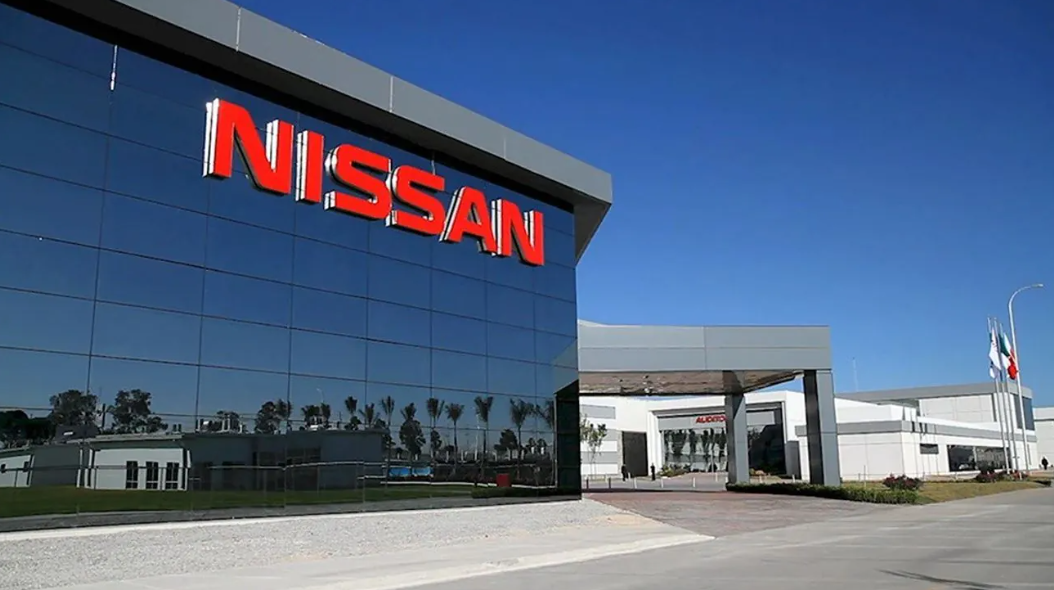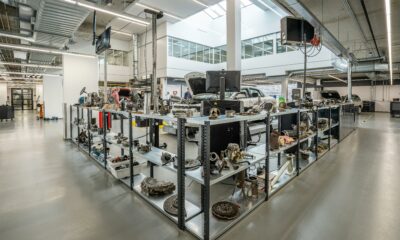News
Nissan Eases Fears Over South African Plant Amid Global Restructuring

Nissan’s African division is attempting to allay domestic anxieties as a result of the company’s plans for global restructuring, particularly at its important Rosslyn plant in Pretoria.
Nissan Japan may significantly reduce its global footprint by closing seven of its 17 production facilities, according to reports that surfaced last week. This raised concerns in markets that are frequently targeted when multinational corporations streamline, such as South Africa, India, and Argentina.
However, Nissan Africa has intervened to provide some
Nissan Africa’s Head of Communications and PR, Ramy Mohareb, told Business Report on Tuesday that the reports regarding particular plant closures were not supported by official company communications. “The operations and people that enable our success continue to be our primary focus,” he stated.
A Restructure Fueled by Survival
The overarching strategy, known as the re:Nissan recovery plan, aims to improve the long-term sustainability of the business. By 2027, Nissan plans to eliminate about 20,000 jobs worldwide. This includes the 9,000 job cuts that were previously announced, which will affect everyone from engineers and back-office staff to factory workers.
The business also declared that it would abandon a number of capital projects that were in the works, including a lithium battery plant in Japan. Instead, it is using a more “customized” approach for the rest of the world while doubling down on markets such as the U.S., China, Europe, and Mexico.
Workers in South Africa were understandably concerned about this, especially since it was unclear if local plants would be impacted.
Local Wins Offer Hope
The overarching strategy, known as the re:Nissan recovery plan, is to improve the long-term sustainability of the business. By 2027, Nissan plans to eliminate over 20,000 jobs worldwide. This includes the 9,000 job cuts that were already announced, which would affect everyone from engineers and back-office staff to factory workers.
The business also declared that it will abandon a number of capital projects that were in the works, including a lithium battery plant in Japan. Instead, it is using a more “customized” approach for the rest of the world while doubling down on areas such as the U.S., China, Europe, and Mexico.
Workers in South Africa were understandably concerned about this, especially since it was unclear if local plants would be impacted.
Unions Call for Transparency
However, not everyone is persuaded.
Nissan’s lack of direct communication has drawn criticism from the National Union of Metalworkers of South Africa, or Numsa. Although the union has not received any official updates, union spokesperson Phakamile Hlubi-Majola noted that media reports indicating that 20,000 jobs may be in jeopardy are extremely concerning.
“To get clear answers, we’re interacting with Nissan management,” she stated. “Numsa is prepared to fight for every job in this sector, and our members deserve to know where they stand.”
But not everybody is persuaded.
Concern has been raised by the National Union of Metalworkers of South Africa (Numsa) regarding Nissan’s lack of direct communication. According to union spokeswoman Phakamile Hlubi-Majola, media claims indicating that 20,000 jobs may be in jeopardy are extremely concerning, even though the union has not received any official information.
She stated, “We’re interacting with Nissan management to obtain precise responses.” “We want our members to know where they stand, and Numsa is prepared to fight for all of the jobs in this industry.”
{Source: IOL}
Follow Joburg ETC on Facebook, Twitter , TikTok and Instagram
For more News in Johannesburg, visit joburgetc.com



























